5 min read
Share this post

Today I would like to highlight our possessive adjectives and possessive nouns lesson plans.
We begin with a quick introduction about where possessive adjectives appear in basic sentences and relate these sentences to clear and simple images:

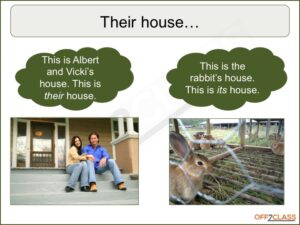
The student then has the opportunity to create simple sentences using my, his and her:
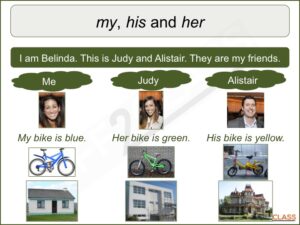
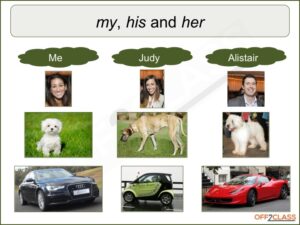
We then introduce the possessive adjectives our and their:

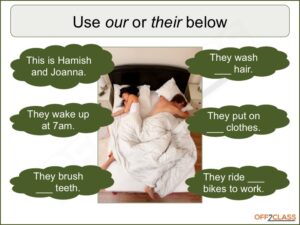
The lesson then continues with some freer practice, using gapfill and sentence correction. One considerable point of confusion for beginner ESL students is the distinction between the contraction it’s and the possessive adjective its (and apostrophes in general). This is likely the first time your student has experienced this concept, so we make a special (and we hope intuitive) explanation of the concept:
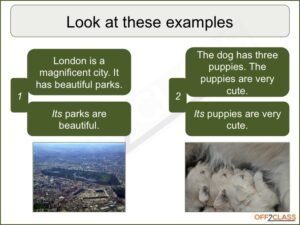
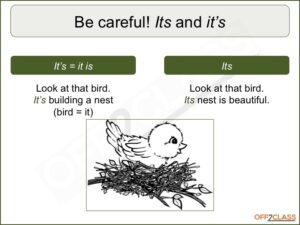
We conclude the lesson with further freer practice and a summary review of the possessive adjectives.
Typically I don’t teach possessive nouns to a student immediately after covering possessive adjectives. I find it’s a good idea to let the concept of possessive adjectives solidify for the learner with continued basic sentence practice before adding the layer of possessive nouns. Consider some mild vocabulary lessons as a break for your student between the lessons. When you feel that it’s time, here is our suggestions for using our N4.1 – Possessive Nouns lesson. (Remember, this may be the first time your student has learned the apostrophe to show possession, and it is likely to be quite a departure from possession in the student’s native language).
We begin by using your student’s knowledge of possessive adjectives to introduce the concept of possessive nouns:
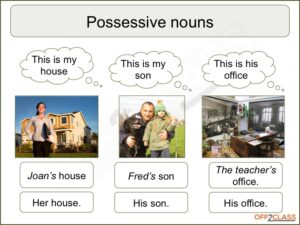
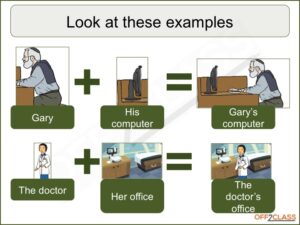
We then take some time to introduce the apostrophe and how it is used with a noun to express possession:
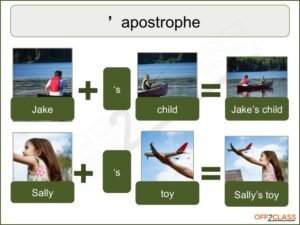
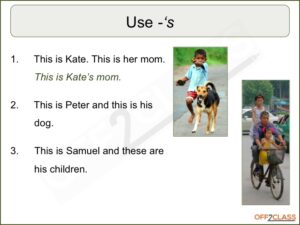
After some freer practice of gapfills and matching, we introduce two challenging concepts 1) the use of -‘s without a noun (as in Peter’s – implied car/book/hat), and 2) the apostrophe for plural nouns that end in -s (students’ homework). These are two very difficult concepts for beginner ESL students. We recommend reinforcing these concepts before moving on:
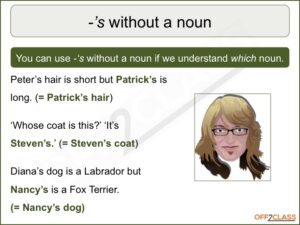
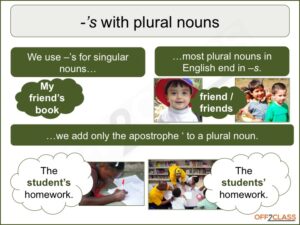
The lesson proceeds with exercises that cover each angle of the possessive nouns. Two more challenging concepts are introduced before the end of the lesson 1) the use of of with things and places (the capital of China) and 2) the use of –‘s with words like yesterday, tomorrow etc… (yesterday’s lesson):
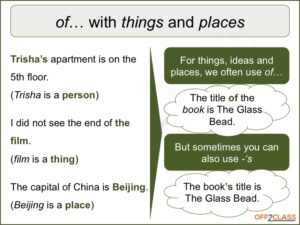
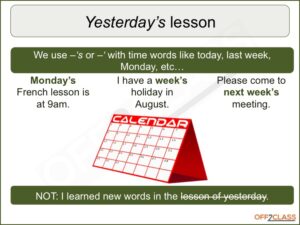
These concepts are challenging for a beginner. It’s nor always possible to deliver all concepts in a single session, which why we recommend returning to our possessive nouns and adjectives lesson plans for periodic reinforcement. I find with most of my beginners I will come back to these lesson four to five times, over a period of two to three months.
Share this post



14 Comments
The lesson plan is very detailed. It is also designed with anticipation for the student’s capacity to understand the new concept.
This is very well done.
Hi Rey,
Thank you for your comment. We’re glad that you find our lesson plans useful. We hope that they help both students and teachers.
Best wishes
James
Well done, brilliant lesson plan!
Hi Elle,
Thanks for your positive feedback. We’re happy that you enjoyed teaching with our possessive adjective and noun lesson plans.
Best wishes,
James
Fantastic! Really useful. Thank you very, very much.
Thanks Maria, we hope you enjoy teaching with these lessons as much as we do!
I found it really useful,thank you so much .
Thanks for stopping by Doaa!
Thank you so much.your site is a gift for me.it is so useful.
We’re pleased that you find it useful!
James
Huge thanks!! This lesson plan was so helpful for me and my students..
So glad you liked it!
Thank you this are excellent lesson plans helps a lot. love your page
Hi Lizeth, so great to hear!
There are 150+ more free lesson plans like this available with a free account: https://app.off2class.com/auth/register.
Let me know if this helps!
Christine